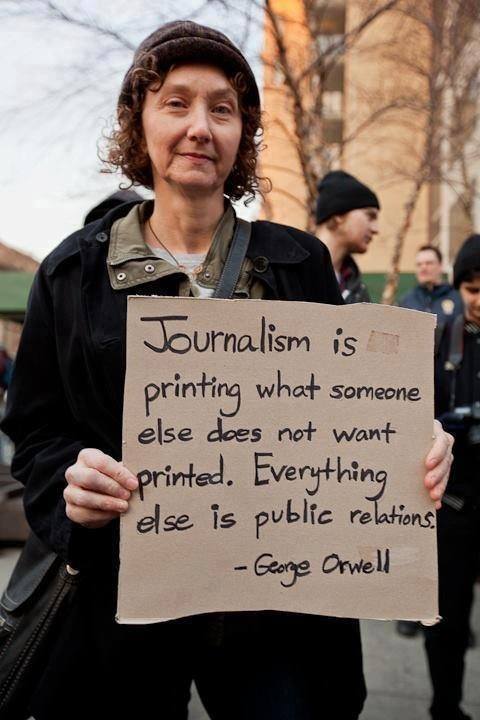
We offer proofreading services, upconversion of Windows PCs to the Linux flavor of your choice, and various other services. The best way to get in touch with us is our contact form.
political economy in the non-market, non-state sector

We offer proofreading services, upconversion of Windows PCs to the Linux flavor of your choice, and various other services. The best way to get in touch with us is our contact form.
I became aware of the terminology “high modernist” by reading Scott Alexander’s review of Seeing Like a State by James Scott. Scott A:
But the High Modernists were pawns in service of a deeper motive: the centralized state wanted the world to be “legible”, ie arranged in a way that made it easy to monitor and control. An intact forest might be more productive than an evenly-spaced rectangular grid of Norway spruce, but it was harder to legislate rules for, or assess taxes on.
Now I have no desire to be anyone’s pawn, but I desperately want to live in a world that is legible. It just occurred to me that that is the central reason I came up with the idea of pubwan, a central reason I came up with the idea of anagorism and, now that I think about it, probably what I really would most like to do for a living, to think of as not just a livelihood but a calling, is work to increase legibility of the world. I wouldn’t want to be a party to the kinds of scorched-earth policies described by J. Scott and Scott A., so it looks like I have to look elsewhere for a professional calling, which is sad, because I’m really fresh out of ideas as to how I might make something of myself.
I want to know why legibility enhancement has been as problematic as it has been. The following possibilities occur to me:
I’ve largely reached the conclusion that the agenda of the effective altruism movement has a phase one which consists of gradually adding effectiveness to altruism, at some point to be followed by a phase two which will consist of gradually subtracting altruism from effective altruism. Basically, effectiveness is to effective altruism as efficiency is to neoliberalism as paper clip is to paper clip maximizer.
If effective altruism is actually a program of gradually replacing altruism with effectiveness, it would seem to be a similar strategy to the one that the think tank machinery of free market ideology has used, first to phase out political economy as a subject of study, then to phase in so-called public choice theory. Basically their agenda is to frame political science as a branch of economics. I don’t doubt they plan to enclose sociology and anthropology much as they have political science. Basically, in their view there is economics, and then there are bullshit “disciplines” pretending to be social sciences. But the economists at the think tanks are hired guns. There will always be paying gigs for those willing to speak power to truth.
As everyone who knows anything knows, the efficiency of free markets is unassailable, but can the incomprehensibly superior ability of the market mechanism to calculate maximum resource allocation, be harnessed in service to criteria of efficiency that are person-weighted, rather than dollar-weighted? I’ve seen no evidence that it can, but happily, as of yet, no conclusive reason it can’t. Whether I’m a soft anagorist (advocate of building the new allocation mechanism within the shell of the old) or a hard anagorist (basically, market abolitionist) hinges on the question of whether it turns out market calculation can also optimize person-weighted criteria of efficiency.
When it comes to EA’s, it seems their highest priority goal is reduction of extreme poverty. I can think of no more appropriate goal, as that is also the primary goal of the school I’m rooting for, which is negative utilitarianism. Where things maybe go off the rails, is that at least some EA’s conclude that the thing they can do personally that best serves EA goals is to earn as much money as possible. Maybe my life would be more comfortable if I were capable of believing that. Then again, maybe at some point I will decide to become a true believer in wealth being the only answer to poverty, and fail to thrive in the market economy anyway. I would sure as hell feel used if I were to dedicate myself to the money grubbing process out of a conviction that filling my own cup is a prerequisite for helping fill others’, only to find that my new-found conviction and dedication does not in itself add enough competitiveness to my job search that I actually start landing impressive job offers.
Likewise, there’s a certain horror at the prospect of maybe the economists being right about economics being on a sound empirical basis (in ways the other social sciences are not). After all, if economics is really a science, my rejection of the body of economic theory constitutes a form of science denialism. Maybe I’m no better than the global warming denialists. But observe how many economics non-denialists are global warming denialists. The money backing much economic research appears to be partisan (in Newspeak, nonpartisan) money. For now, I stand by anagorism. Whether hard or soft remains to be seen, for a little while.

That’s the real reason there’s no viable business model for journalism. All this talk of ad blocker blockers and micropayments and DRM misses the point. To work for money is to work for money.
It is a nation without an official religion. That’s precisely why it’s home to the (unfortunately, in my opinion) least secular society in the free world. The absence of an official religion is why America became a magnet for those members of European sects that actually believed in their theology, as well as becoming a laboratory for new extra-strength forms of (and perhaps variants on) Christian theology, such as Assemblies of God, Church of LDS, Missouri Synod Lutheranism, KJV-only Christians, etc.
It’s about in-group vs. out-group, and it’s also a numbers game. Today, to come up with a Christian majority, you have to include a lot of people who would have been classified as non-Christian in previous generations, including a whole lotta Cafeteria Catholics, Mainline Protestants, etc. But the people most loudly proclaiming the Christian majority are the ones who in the pulpits of their own places of worship most narrowly define what it means to be a true believer (and therefore saved, according to their beliefs).
The free culture movement and the pirate movement are two quite different things. The latter is fair game for ostracism by those who value Rule of Law. Free Culture, however, is not about expropriating things into the public domain but creating things that are born public domain, basically a (largely failed) effort to bring the (IMHO admirable) open source ethic to things other than software.
David Newhoff, in This is no time to be devaluing creators, seems to be trying to conflate the free culture movement with the tragically unfortunate trend of employers who want to pay people in “exposure” or “experience.” That phenomenon harms most if not all workers, creative class or not. The former would benefit more from better labor law protections than from better IP protections.
Another reason a middle level (or middle class) niche in cultural product is difficult to carve out is the “long tail” nature of audience share distribution. So it will probably always be the case that the nightclub acts vastly outnumber the rock stars, but also that the amateurs will always vastly outnumber the nightclub acts. Making assertion of IP rights the main strategy against the unpaid internship phenomenon looks from my outsider perspective like an attempt to guildify the creative professions by erecting entry barriers. I actually have nothing against this approach, as I’m pro-union. But should the high wall be between established professionals and semiprofessionals? Or between semiprofessionals and amateurs? Perhaps the creatives should go full trade unionist and adopt a formal apprentice/journeyperson/master hierarchy. I think paid apprenticeships are the only truly appropriate answer to unpaid internships.
The market is remarkably good at allocating resources efficiently. The only problem is that the market magic doesn’t work on criteria of efficiency that aren’t dollar-weighted. I suppose it’s one of those normative vs. positive things. Since (1) it doesn’t seem possible to harness the market mechanism for solving person-weighted optimization problems and (2) I’m not ready to surrender some of my normative commitments (specifically, negative utilitarianism), it appears to me that an effort at intentional economic calculation is necessary, even though it will probably be inherently inferior to the market as an optimization algorithm.